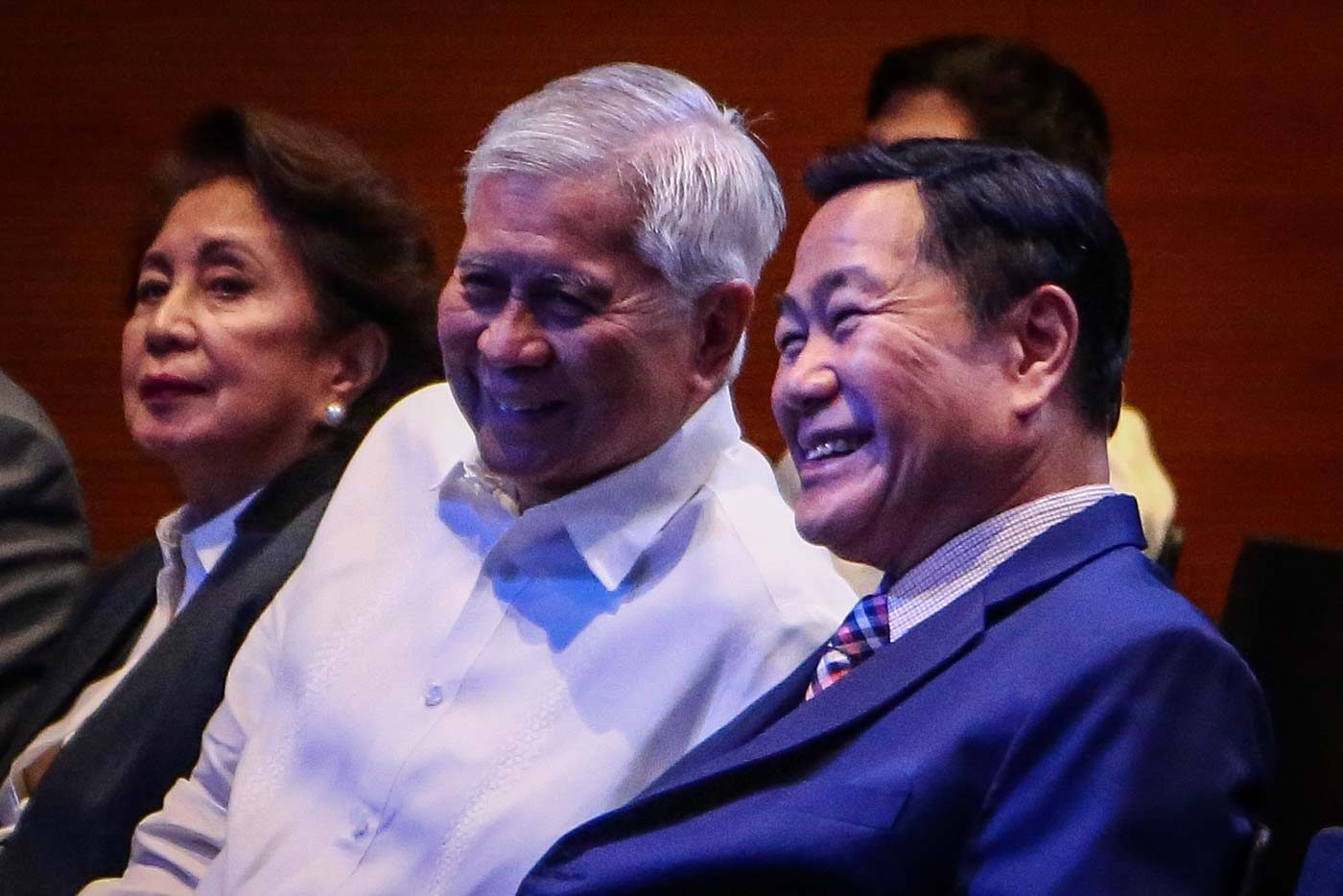SUMMARY
This is AI generated summarization, which may have errors. For context, always refer to the full article.

MANILA, Philippines – Newly retired Supreme Court Senior Associate Justice Antonio Carpio backed the proposal of former foreign secretary Albert Del Rosario urging the Philippine government to take the 2016 Hague ruling to the United Nations.
Speaking at a forum on the South China Sea Code, Carpio said one way to get Beijing to abide by the legal victory was by rallying international public opinion behind the arbitral ruling that asserted the rule of law and the Philippines’ rights in the West Philippine Sea.
“We have a majority of the nations of the world behind us in that ruling and we should follow what Secretary Del Rosario has been saying: bring the issue to the UN general assembly,” Carpio said on Monday, October 28.
Del Rosario earlier said the Philippines should seize the opportunity to “present a case for the UN to reassert that right is might and the rule of law must be upheld.” (READ: Del Rosario refutes Duterte gov’t: U.N. resolution on Hague ruling ‘can be done’)
Carpio agreed with Del Rosario, saying the UN General Assembly was the proper venue to raise the arbitral ruling as it was where leaders of the world gathered and listened to one another.
“We are left with world opinion because we assume China will not voluntarily comply and where is the locus of world opinion? The locus of world opinion is really the (UN) General Assembly. We cannot go to the (UN) Security Council because China has veto,” Carpio said.
“World opinion matters because China needs the world,” he added.
Majority support: Like Del Rosario, Carpio agreed that if the Philippine government were to bring the landmark Hague ruling to the UN, it would have the majority of countries on its side.
“I think in our case we are not alone. We have 4 other ASEAN countries who are prejudiced by the (China’s) 9 dash line supporting us. We have the G20 supporting us. And all the small countries that are afraid that their bigger neighbors may encroach on their exclusive economic zones also will be supporting us,” Carpio said.
The retired justice, who was one of the legal minds behind the Philippines’s case against China, cited Nicaragua’s similar efforts to pass a resolution urging the United States to abide by an International Court of Justice ruling that favored Nicaragua in 1986.
Carpio said Nicaragua was able to pass a resolution after several rounds of voting during which the Latin American country was able to gain more support for its case.
“Here was Nicaragua alone in the world fighting the US as the superpower, the greatest economic and military superpower on earth and…. It got the overwhelming majority of the world supporting its position,” Carpio said, adding that compared to Nicaragua, the Philippines was at a “greater advantage” to gain more votes for it at the UN.
The retired justice pointed out that if the Philippines were to bring the arbitral ruling to the UN, it would also make a case that the rule of law in the sea – to which majority of countries, including China were party to – must be upheld. (READ: Carpio offers 5 ways ASEAN can counter Chinese intimidation in South China Sea)
“If China starts a precedent that they can just grab their neighbors EEZ (exclusive economic zone) then other countries will follow and that will lead to a collapse of the law of the sea. The naval powers of the world will not want that,” Carpio said.
He added: “It’s just common sense because every small state trying to protect its EEZ will not want its big neighbor to grab its EEZ. If China can do it to 5 ASEAN states then others will follow.”
The Duterte administration earlier rejected this proposal, claiming the UN has no power to compel China to follow it. The case of Nicaragua, however, proved this wrong.
Like Carpio and Del Rosario, the Philippines’ lead counsel against China, Paul Reichler, said the Philippines can make China comply with the Hague ruling by joining forces with other countries.
Reichler told Rappler in an earlier interview: “How do you get a big and powerful state to comply with its obligations especially if you are a much smaller and much less powerful state? It has to be by joining forces with other states that have similar interests in encouraging China, in pressuring China, to comply with international law and to respect their sovereign rights.” – Rappler.com
Add a comment
How does this make you feel?
There are no comments yet. Add your comment to start the conversation.